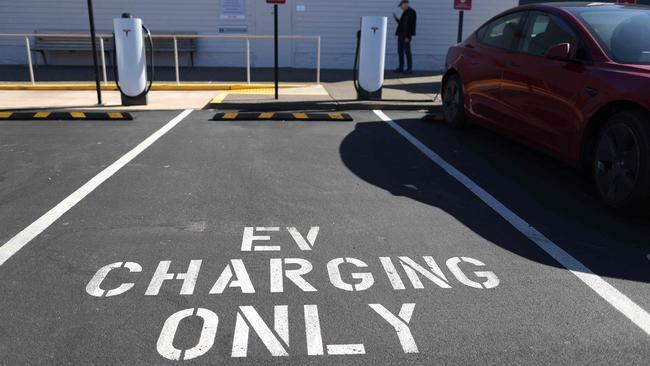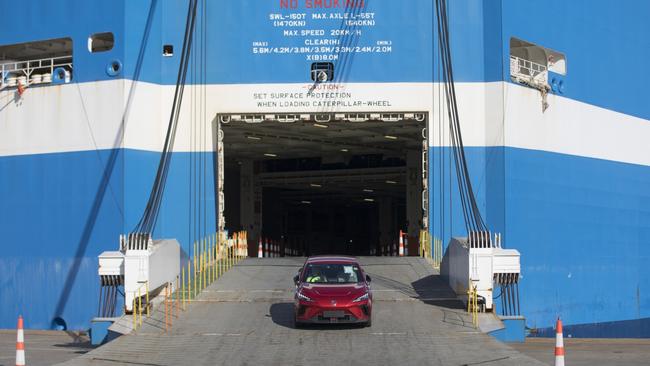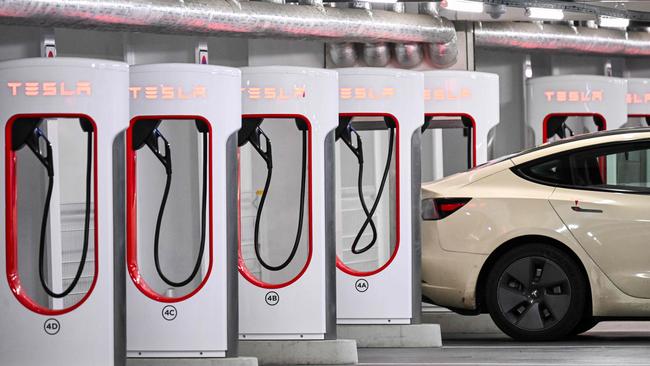Stop complaining about fuel prices and consider an EV

Some 46,624 electric cars were sold in the first half of this year, compared to 39,353 for the whole of 2022. This puts Australia on track for a 150 per cent increase in electric car sales this calendar year as we quickly move from 2 per cent of total new car sales to 10 per cent.
But a question still remains: is there an overall financial benefit in owning an electric car when finance costs, operating costs and depreciation are all taken into account?
It seems like only a few years ago electric cars were only within the reach of the wealthy and were viewed as a status symbol. Casually pulling up to a social gathering in a Tesla EV instantly made you trendy, environmentally conscious and an early adopter of new technology. But today, electric cars are a common sight across Australian roads.
Interestingly, Tesla was not the first electric car manufacturer to sell EVs on Australian shores. This title goes to the compact Mitsubishi i-MiEV which had a 155km range and started selling in 2010, four years before Tesla came along.
Affordability has also improved over the past 10 years.
No longer do you have to spend over $100,000 to own an electric car.
Chinese manufacturers MG and BYD have both released electric cars that can be purchased for less than $40,000, plus on-road costs. If you include the $3000 EV rebate and stamp duty exemption offered by states such as NSW and Queensland, then a few more electric cars such as the GWM Ora fall within the sub $40,000 category.

A similarly-sized petrol engine car such as the two-litre Toyota Corolla SX retails for just over $36,500, making petrol and electric motor cars comparable in price for the first time ever. This brings in a new cohort of buyers who are not necessarily focused on the environmental benefits of an electric car, but looking for weekly budget savings by not having to fill up their petrol tank with fuel each week.
Critics say that an electric vehicle depreciates faster than you can drop a hot potato. However, analysing aftermarket prices of electric versus petrol vehicles tells a different story.
A brand new 2023 Tesla Model 3 costs about $65,000, excluding state-based rebates and waivers, whereas a second-hand Tesla 3 from 2020 with 50,000km on the odometer sells for around $50,000. This represents a 23.1 per cent drop in value over the three-year period. A 2023 Toyota Camry Ascent with a 2.5 litre petrol engine sells for $39,000 on road, and in the secondary market a 2020 model with 50,000km sells for about $30,000. This, coincidentally, is also a 23.1 per cent decline in value, indicating that depreciation on EVs and non-EVs will be similar.
Longer term, there is concern by some that you might have to throw away your EV in 10 years time as the price of a new battery could be tens of thousands of dollars and cost more than the EV is worth. Depending on the operating conditions and care for the battery, an electric car loses about 3 per cent battery capacity each year. After 10 years, the average electric car will still have around 70 per cent of its original battery capacity, giving it plenty of life beyond the 10 year mark.
The other thing to consider is how much it costs to operate and maintain an EV versus an internal combustion engine vehicle.
The good news for EV owners is that maintenance is minimal. Apart from topping up the wiper fluid and changing the brake pads and tyres every few years, there is not much else to service on an electric car, meaning some manufacturers such as Volvo only schedule minor services every two years on their electric cars.

When it comes to powering an EV, the charging infrastructure is rapidly improving, with a 50 per cent increase in public charging stations throughout 2022.
In addition to private operators establishing pay-as-you-go charging stations in shopping centres and petrol stations, both state and federal governments have committed big bucks to improve EV charging infrastructure.
The federal government announced plans for 117 fast charging stations on highways around the country earlier this year as part of their $500m driving the nation fund. The plan is to create a national network of rapid EV charging stations every 150km on national highways.
For the urban commuter, if you are able to organise your weekly schedule to accommodate charging an EV at free public charging stations, such as when you do the weekly grocery shopping, then you will enjoy a 100 per cent reduction in fuel costs when moving from an internal combustion engine vehicle to an electric car. But assuming that you recharge your EV at home and have an anytime electricity rate of 35c per kilowatt hour, the 51KWh battery on the $38,990 MG 4 will cost $17.85 to recharge and give you a range of 350km, which equals $5.10 per 100km. And if you are lucky enough to have solar panels installed this cost will reduce further.
A Toyota Corolla SX petrol engine uses six litres per 100km; with fuel prices around $2 per litre the cost to drive 100km is $12. However, with Victoria having a zero and low-emission vehicle road user fee of 2.8c per km and NSW bringing one in over the next few years, the EV loses a few dollars per 100km but is still about half the price to recharge compared with a petrol engine equivalent.
In the past, owners of electric cars would have to pay a hefty premium upfront to purchase an EV to then achieve the ongoing savings with regard to low recharging prices. But for small and mid-sized vehicles, at this stage, EV prices have fallen to be comparable with fossil fuel-powered cars.
More than any time before there is a compelling financial argument for your next vehicle to be electric, especially when state rebates, stamp duty waivers and the 100 per cent tax deductibility of novated lease payments under the relatively new electric car discount bill are factored in.
James Gerrard is principal and director of Sydney planning firm www.financialadvisor.com.au







If you are tired of paying record fuel prices then you may wish to consider the new generation of electric vehicles hitting Australian roads in record numbers at the same price point as their traditional internal combustion engine counterparts.